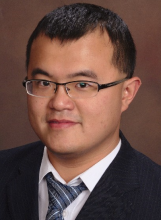EECS Seminar: Unleashing the Potential of Wireless Sensing - Expanding Horizons in Smart Health, Cybersecurity and Beyond

Abstract: In modern society, wireless technologies are standing on the precipice of revolutionizing our comprehension and interaction with the world. These technologies are shattering the conventional limitations of sensory modalities, offering a new lens to perceive the world in ways previously unimagined. In this talk, I will share some path-breaking insights and innovative technologies, developed by my research team and collaborators, that stretch the capabilities of wireless signals to revamp traditional applications. For example, we will first navigate the fields of smart health and human-computer interaction (HCI), demonstrating how wireless signals can capture high-definition voice for more accurate human-machine interaction and more robust biometric identification. And then, we will discuss the changes in the cybersecurity area, and see how these innovative signals can advance the detection technologies of concealed electronics in the ambiance, bolstering our defense against privacy and security threats. Finally, I will wrap up the talk by discussing the challenges and opportunities lying ahead in wireless sensing research, as well as how wireless sensing tools can be woven into scientific explorations in different fields in the future.
Bio: Wenyao Xu is a professor in the Department of Computer Science & Engineering (CSE) at the University at Buffalo, State University of New York, where he also currently serves as the associate department chair. His research focuses on the Internet of Things systems, particularly their applications to digital health, smart manufacturing and cybersecurity. He has published over 230 papers in academic journals and conferences. His research work has received many awards and recognition, including multiple Best Paper Awards from premier conferences (e.g., ACM MobiSys, ACM SenSys, IEEE BSN, and IEEE BHI). He holds seven U.S. and international patents, most of which have been licensed to industry, thereby catalyzing substantial societal and economic impacts. His research work is generously supported by the NSF, NIH, NIOSH and PCORI.
Share
Upcoming Events
-
MSE 298 Seminar: Mechano-Electrochemical Phenomena at Ceramic Electrolyte Interfaces
-
MSE 298 Seminar: Innovation In Materials Science - An Industrial R&D Perspective
-
MSE 298 Seminar: Understanding the Impact of Grain Boundary Inclination on Grain Growth Using Modeling and Simulation and Experiments
-
EECS Seminar: Mixed Conductors for Bioelectronics
-
MSE 298 Seminar: Ionic Correlations in Polymer Nanostructures - From Block Copolymers to End-Charged Blends
